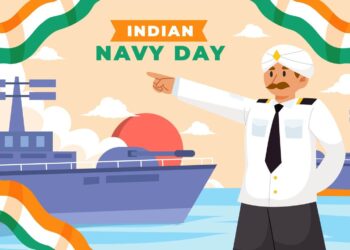Around a century back, marine engineering was a field that people wouldn’t have heard of. But in today’s times, it is a profession that is as popular as any other famous ones. Today, more and more people are aware of professionals in this field and it has outgrown its own borders to include several branches under it.
Marine engineering refers to an engineering branch that deals with the designing, developing, construction, manufacturing and maintenance of ships, sailboats, seacraft, docks, submarines, and other harbour installations. Marine engineering professionals are also responsible for the internal system of the ships, including the electrical steering, refrigeration, and propulsion systems. There are several courses that train candidates who want to work in the field of marine engineering. Let’s get to understand more about marine engineering courses in India, eligibility criteria for these courses and other such aspects.
Eligibility Criteria for Marine Engineering Courses
UG (Undergraduate): Undergraduate aspirants must have passed their senior secondary education with a minimum of 60% marks in PCM (Physics, Chemistry and Mathematics). They should have got at least 50% marks in English in tenth grade or twelfth grade. Some institutions might have set a minimum age limit and maximum age limit, while others may not have any limitations. Some institutions may even examine the medical fitness of candidates.
PG (Postgraduate): At the PG level, candidates must have passed their 10+2 exams from recognised institutions. They must have also secured a minimum aggregate percentage of 60% in their BE or BTech in Marine or Mechanical Engineering graduation from a recognized institute.
Marine Engineering Entrance Exams
Entrance examinations are conducted at the UG and PG level for candidates seeking admissions in marine engineering programmes. However, some institutions may also accept admissions based on merit. The process of selection might differ from one institution to another. But usually, the admission process involves two steps:
- Announcing merit list depending on the performance of the candidates in qualifying exams or entrance exams
- Admissions depending solely on the entrance exam
Once the candidate is shortlisted, he or she may have to go through other qualifying levels like group discussion, personal interview, medical exam and psychometric exam. Some colleges may also accept direct admissions.
The most popular entrance examinations for marine engineering courses are IMU CET (Indian Maritime University Common Entrance Test), JEE (Joint Entrance Examination) Main, JEE (Joint Entrance Examination) Advanced, MERI (Marine Engineering and Research Institute Entrance Examination), GATE (Graduate Aptitude Test in Engineering), and HIMT Entrance Exam.
Best Marine Engineering Courses
Marine engineers usually monitor and maintain the mechanical systems, attend to emergency repairs or breakdowns, construction processes and record keeping. Many programs like cable laying work, underwater vehicle research, and production of renewable energy are categorised under marine engineering. There are many pre-sea and post-sea training courses. Some of the best marine engineering courses are:
- B.Tech. or B.E. in Marine Engineering
- M.Tech. in Marine Engineering
- B.Sc. in Maritime Science
- M.Sc. in Marine Engineering
- Diploma in Nautical Science
- B.Sc. in Ship Building and Repair
- BBA in Shipping Management
Career Options After Marine Engineering Courses
Marine engineering aspirants who have completed appropriate courses have several career options to choose from. Here are a few options:
- Marine engineers can take up various careers in various industries such as ship manufacturing, shipping, power sector, steel industry, consultancy firm and the manufacturing sector.
- After completion of marine engineering courses, they can choose lucrative careers in private and public shipping companies in India, foreign shipping companies, ship designing and building companies, engine production companies, and research organizations.
- Marine engineers can choose careers that involve designing, construction and development of nautical equipment.
- They can also get employed as a marine engineer on a ship as a fourth engineer or a third assistant engineer.
Marine Engineering Skills
Marine engineers need to have a good foundation in Physics, Chemistry and Mathematics in addition to a strong interest in maritime technology. They should also gain traits required for a successful career in maritime engineering, including complex problem solving skills, strong numeracy skills, analytical skills, good communication skills, writing skills, leadership & teamwork skills, and technical & practical skills. They should also possess IT skills as several modules will have computer-aided design programs such as AutoCAD.
In today’s world, marine engineering careers are among the highly lucrative options, which is why many candidates prefer to work in this field. So, marine engineering courses are also in high demand. The employment opportunities are also increasing drastically in this field, which has further added to its attractiveness. The armed navy as well as the merchant navy have several opportunities for aspiring candidates in this field. We hope the above discussion has helped you get a deep insight into various marine engineering courses and its requirements. Choose the best for your abilities and build a lucrative career in this field.
Get more exciting blogs read more on pinay scandal.






